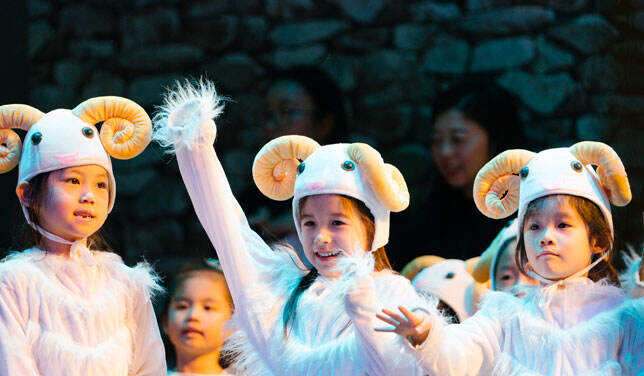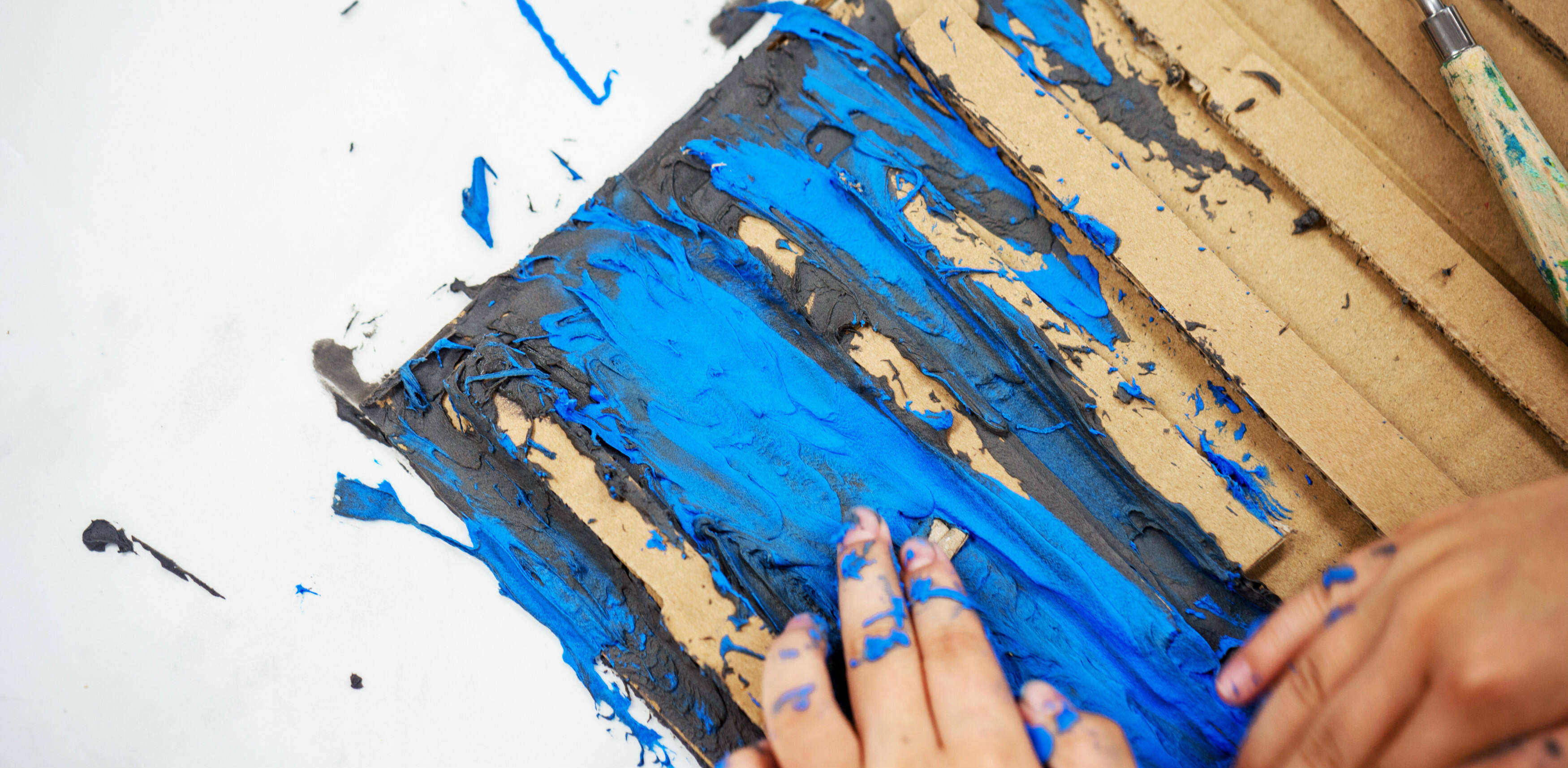Science Week | Things non-scientists say
2018-01-24
It’s the start of the Science Week and the college is abuzz with the energy of potential discoveries and the “eureka” moments of inspiration that come with them. Wherever you look, everyone is gearing up to get experimental and gain a better understanding of what really makes things tick. But of course, as much as science is practical and logical, it’s also highly abstract and theoretical too, inspiring people in different ways as each answer throws out new questions to be investigated.
As the week unfolds, you’ll see that science can be a part of everything we learn at Wellington. To demonstrate, some of our non-scientist teachers explain what science means to them, and what they’ll be doing to bring science into their lessons this week.
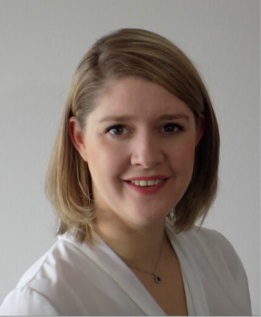 Charlotte Montague – Head of English
While English and science may not at first glance seem the most similar of subjects, one informs the other more than you might think. As we live in a time where we are bombarded with information from every side, being able to think in a logical, scientific manner can be invaluable when trying to sift through data and separate what’s true and what’s inaccurate or just plain false. This scientific thought process lends itself to being able to form and express opinions in a clear, consistent and well-reasoned manner: just the thing for making your case in an English essay!
Likewise, English teaches us how to critically analyse what is put in front of us, which allows us to differentiate between reliable information and information that can be misleading. This makes all the difference when trying to correctly interpret what science is telling us.
At the same time as being very logical and practical, science can be the stuff of raw imagination, as we consider the incredible possibilities of the future. For Science Week, upper Prep and Senior school pupils will be doing just that, as they delve into writing science fiction stories and analysing the science behind the supernatural. We’ve also updated the English blackboard for pupils to share their favourite scientific words, books and podcasts.
Charlotte Montague – Head of English
While English and science may not at first glance seem the most similar of subjects, one informs the other more than you might think. As we live in a time where we are bombarded with information from every side, being able to think in a logical, scientific manner can be invaluable when trying to sift through data and separate what’s true and what’s inaccurate or just plain false. This scientific thought process lends itself to being able to form and express opinions in a clear, consistent and well-reasoned manner: just the thing for making your case in an English essay!
Likewise, English teaches us how to critically analyse what is put in front of us, which allows us to differentiate between reliable information and information that can be misleading. This makes all the difference when trying to correctly interpret what science is telling us.
At the same time as being very logical and practical, science can be the stuff of raw imagination, as we consider the incredible possibilities of the future. For Science Week, upper Prep and Senior school pupils will be doing just that, as they delve into writing science fiction stories and analysing the science behind the supernatural. We’ve also updated the English blackboard for pupils to share their favourite scientific words, books and podcasts.
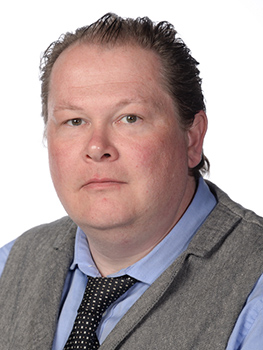 Robert Hicks – Head of Mathematics (Prep School)
Wait? Am I a non-scientist? Mathematics isn't just a tool for doing science, it is a science in its own right. Math is the ultimate science – one that isn't confused by springs and test-tubes and messy bits of plants and animals. It's the purest, neatest science where the only evidence you ever need to prove something is thorough application of some basic (and universal) rules. Numbers never lie! A seven behaves like a seven no matter what the temperature is and no matter who uses it.
This week we're working closely with the science department, using data from an experiment conducted in science lessons to look at how it can be mathematically analysed and interpreted. This will form a nice loop, where a science lesson informs a maths lesson, then the maths lesson informs a concluding science lesson.
Robert Hicks – Head of Mathematics (Prep School)
Wait? Am I a non-scientist? Mathematics isn't just a tool for doing science, it is a science in its own right. Math is the ultimate science – one that isn't confused by springs and test-tubes and messy bits of plants and animals. It's the purest, neatest science where the only evidence you ever need to prove something is thorough application of some basic (and universal) rules. Numbers never lie! A seven behaves like a seven no matter what the temperature is and no matter who uses it.
This week we're working closely with the science department, using data from an experiment conducted in science lessons to look at how it can be mathematically analysed and interpreted. This will form a nice loop, where a science lesson informs a maths lesson, then the maths lesson informs a concluding science lesson.
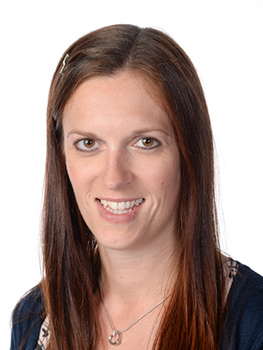 Stephanie Hopkinson – Early years
In Pre-Prep, science is about teaching pupils to have an awareness of, and to begin to understand, the world around them. It’s about inspiring curiosity in pupils, helping them to investigate their own scientific ideas, looking at similarities, differences and changes, while also giving them the language and experiences to talk about science, to wonder and ask “Why?”.
During Science Week, we will be exploring and investigating science in different ways. Years 1 and 2 will be working on the science of construction and, along with the younger children in Pre-Prep, will be visited by some real scientists. Expect exploding volcanoes! And of course, we are very much looking forward to the annual Science Week liquid nitrogen show: would we like to try some liquid nitrogen frozen ice-cream? Yes, please!
Stephanie Hopkinson – Early years
In Pre-Prep, science is about teaching pupils to have an awareness of, and to begin to understand, the world around them. It’s about inspiring curiosity in pupils, helping them to investigate their own scientific ideas, looking at similarities, differences and changes, while also giving them the language and experiences to talk about science, to wonder and ask “Why?”.
During Science Week, we will be exploring and investigating science in different ways. Years 1 and 2 will be working on the science of construction and, along with the younger children in Pre-Prep, will be visited by some real scientists. Expect exploding volcanoes! And of course, we are very much looking forward to the annual Science Week liquid nitrogen show: would we like to try some liquid nitrogen frozen ice-cream? Yes, please!
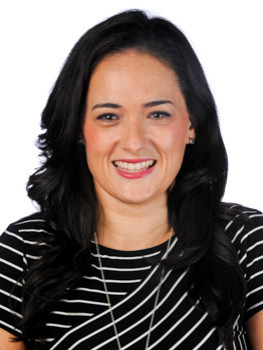 Tia Luker – Prep school
Knowledge, freedom, and excitement. Science gives you the power to understand and explain the world around you and to demystify the mysterious. Science is connective, collaborative, and ever-evolving, which makes it new and exciting all the time. With STEM (science, technology, engineering and maths) education, pupils have the ability to really be creative and truly explore every part of our known (and unknown) universe!
The lower Prep will be participating in Science Week with their own IPC-related science fair. Pupils in year 3 will complete projects and presentations by exploring Materials. Year 4 will do the same by investigating electricity through their Bright Sparks unit. Finally, year 5 will have their own science fair, displaying their work and experiments through their Forces unit.
Tia Luker – Prep school
Knowledge, freedom, and excitement. Science gives you the power to understand and explain the world around you and to demystify the mysterious. Science is connective, collaborative, and ever-evolving, which makes it new and exciting all the time. With STEM (science, technology, engineering and maths) education, pupils have the ability to really be creative and truly explore every part of our known (and unknown) universe!
The lower Prep will be participating in Science Week with their own IPC-related science fair. Pupils in year 3 will complete projects and presentations by exploring Materials. Year 4 will do the same by investigating electricity through their Bright Sparks unit. Finally, year 5 will have their own science fair, displaying their work and experiments through their Forces unit.
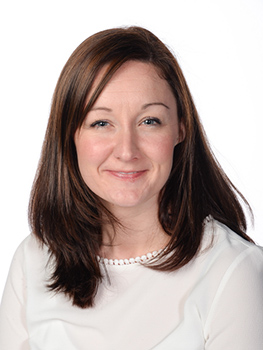 Emma Philo – Head of Design Technology
Science is an explosion of unfathomable discoveries. It is all that we live, breathe and touch. It’s everything in the man-made world, the natural world and everything beyond that which we have not yet discovered. Architects use sheet glass and combine it with steel to create beautiful skyscrapers that adorn our cities. Product designers use plastic polymers to create chairs, televisions, and brightly coloured objects that bring pleasure to each of us. Concrete is used by engineers to line our walkways, build foundations, bridges, roads and dams. Fashion designers use electroluminescent material, microprocessors and LEDs, woven together with clothing fibres to create smart textiles. Biomedical engineers are changing lives daily as they innovate prosthetic organs and limbs. The list is endless. Without science, where would we be?
In art and design technology, we will be exploring screen printing and looking at how smart materials such as thermochromic, photochromic and phosphorescent pigments respond when exposed to different temperatures and levels of light. We will also work in teams to discover how newspaper can be strengthened, to create structurally sound chairs that can take the weight of a person.
Emma Philo – Head of Design Technology
Science is an explosion of unfathomable discoveries. It is all that we live, breathe and touch. It’s everything in the man-made world, the natural world and everything beyond that which we have not yet discovered. Architects use sheet glass and combine it with steel to create beautiful skyscrapers that adorn our cities. Product designers use plastic polymers to create chairs, televisions, and brightly coloured objects that bring pleasure to each of us. Concrete is used by engineers to line our walkways, build foundations, bridges, roads and dams. Fashion designers use electroluminescent material, microprocessors and LEDs, woven together with clothing fibres to create smart textiles. Biomedical engineers are changing lives daily as they innovate prosthetic organs and limbs. The list is endless. Without science, where would we be?
In art and design technology, we will be exploring screen printing and looking at how smart materials such as thermochromic, photochromic and phosphorescent pigments respond when exposed to different temperatures and levels of light. We will also work in teams to discover how newspaper can be strengthened, to create structurally sound chairs that can take the weight of a person.
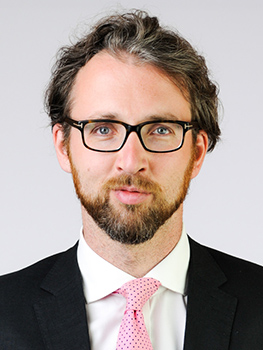 Barry Cooper – Head of History, Housemaster (Senior School)
Science is discovery. Science is the bit of everyone that says – “What on earth was that? How did that happen?” Everyone wants to know and everyone wants to understand. Scientists are the people who take that need to know and make it happen. In some ways history is also a science. It can be looked at through the lens of hypothesis and evidence, but frustratingly there are no clear answers; unlike science – they get all the breaks.
This week in the history department, we are looking at how different civilisations and peoples made discoveries – From the navigation used by the Vikings to the medical advances of modern Europe.
Barry Cooper – Head of History, Housemaster (Senior School)
Science is discovery. Science is the bit of everyone that says – “What on earth was that? How did that happen?” Everyone wants to know and everyone wants to understand. Scientists are the people who take that need to know and make it happen. In some ways history is also a science. It can be looked at through the lens of hypothesis and evidence, but frustratingly there are no clear answers; unlike science – they get all the breaks.
This week in the history department, we are looking at how different civilisations and peoples made discoveries – From the navigation used by the Vikings to the medical advances of modern Europe.
 Charlotte Montague – Head of English
While English and science may not at first glance seem the most similar of subjects, one informs the other more than you might think. As we live in a time where we are bombarded with information from every side, being able to think in a logical, scientific manner can be invaluable when trying to sift through data and separate what’s true and what’s inaccurate or just plain false. This scientific thought process lends itself to being able to form and express opinions in a clear, consistent and well-reasoned manner: just the thing for making your case in an English essay!
Likewise, English teaches us how to critically analyse what is put in front of us, which allows us to differentiate between reliable information and information that can be misleading. This makes all the difference when trying to correctly interpret what science is telling us.
At the same time as being very logical and practical, science can be the stuff of raw imagination, as we consider the incredible possibilities of the future. For Science Week, upper Prep and Senior school pupils will be doing just that, as they delve into writing science fiction stories and analysing the science behind the supernatural. We’ve also updated the English blackboard for pupils to share their favourite scientific words, books and podcasts.
Charlotte Montague – Head of English
While English and science may not at first glance seem the most similar of subjects, one informs the other more than you might think. As we live in a time where we are bombarded with information from every side, being able to think in a logical, scientific manner can be invaluable when trying to sift through data and separate what’s true and what’s inaccurate or just plain false. This scientific thought process lends itself to being able to form and express opinions in a clear, consistent and well-reasoned manner: just the thing for making your case in an English essay!
Likewise, English teaches us how to critically analyse what is put in front of us, which allows us to differentiate between reliable information and information that can be misleading. This makes all the difference when trying to correctly interpret what science is telling us.
At the same time as being very logical and practical, science can be the stuff of raw imagination, as we consider the incredible possibilities of the future. For Science Week, upper Prep and Senior school pupils will be doing just that, as they delve into writing science fiction stories and analysing the science behind the supernatural. We’ve also updated the English blackboard for pupils to share their favourite scientific words, books and podcasts.
 Robert Hicks – Head of Mathematics (Prep School)
Wait? Am I a non-scientist? Mathematics isn't just a tool for doing science, it is a science in its own right. Math is the ultimate science – one that isn't confused by springs and test-tubes and messy bits of plants and animals. It's the purest, neatest science where the only evidence you ever need to prove something is thorough application of some basic (and universal) rules. Numbers never lie! A seven behaves like a seven no matter what the temperature is and no matter who uses it.
This week we're working closely with the science department, using data from an experiment conducted in science lessons to look at how it can be mathematically analysed and interpreted. This will form a nice loop, where a science lesson informs a maths lesson, then the maths lesson informs a concluding science lesson.
Robert Hicks – Head of Mathematics (Prep School)
Wait? Am I a non-scientist? Mathematics isn't just a tool for doing science, it is a science in its own right. Math is the ultimate science – one that isn't confused by springs and test-tubes and messy bits of plants and animals. It's the purest, neatest science where the only evidence you ever need to prove something is thorough application of some basic (and universal) rules. Numbers never lie! A seven behaves like a seven no matter what the temperature is and no matter who uses it.
This week we're working closely with the science department, using data from an experiment conducted in science lessons to look at how it can be mathematically analysed and interpreted. This will form a nice loop, where a science lesson informs a maths lesson, then the maths lesson informs a concluding science lesson.
 Stephanie Hopkinson – Early years
In Pre-Prep, science is about teaching pupils to have an awareness of, and to begin to understand, the world around them. It’s about inspiring curiosity in pupils, helping them to investigate their own scientific ideas, looking at similarities, differences and changes, while also giving them the language and experiences to talk about science, to wonder and ask “Why?”.
During Science Week, we will be exploring and investigating science in different ways. Years 1 and 2 will be working on the science of construction and, along with the younger children in Pre-Prep, will be visited by some real scientists. Expect exploding volcanoes! And of course, we are very much looking forward to the annual Science Week liquid nitrogen show: would we like to try some liquid nitrogen frozen ice-cream? Yes, please!
Stephanie Hopkinson – Early years
In Pre-Prep, science is about teaching pupils to have an awareness of, and to begin to understand, the world around them. It’s about inspiring curiosity in pupils, helping them to investigate their own scientific ideas, looking at similarities, differences and changes, while also giving them the language and experiences to talk about science, to wonder and ask “Why?”.
During Science Week, we will be exploring and investigating science in different ways. Years 1 and 2 will be working on the science of construction and, along with the younger children in Pre-Prep, will be visited by some real scientists. Expect exploding volcanoes! And of course, we are very much looking forward to the annual Science Week liquid nitrogen show: would we like to try some liquid nitrogen frozen ice-cream? Yes, please!
 Tia Luker – Prep school
Knowledge, freedom, and excitement. Science gives you the power to understand and explain the world around you and to demystify the mysterious. Science is connective, collaborative, and ever-evolving, which makes it new and exciting all the time. With STEM (science, technology, engineering and maths) education, pupils have the ability to really be creative and truly explore every part of our known (and unknown) universe!
The lower Prep will be participating in Science Week with their own IPC-related science fair. Pupils in year 3 will complete projects and presentations by exploring Materials. Year 4 will do the same by investigating electricity through their Bright Sparks unit. Finally, year 5 will have their own science fair, displaying their work and experiments through their Forces unit.
Tia Luker – Prep school
Knowledge, freedom, and excitement. Science gives you the power to understand and explain the world around you and to demystify the mysterious. Science is connective, collaborative, and ever-evolving, which makes it new and exciting all the time. With STEM (science, technology, engineering and maths) education, pupils have the ability to really be creative and truly explore every part of our known (and unknown) universe!
The lower Prep will be participating in Science Week with their own IPC-related science fair. Pupils in year 3 will complete projects and presentations by exploring Materials. Year 4 will do the same by investigating electricity through their Bright Sparks unit. Finally, year 5 will have their own science fair, displaying their work and experiments through their Forces unit.
 Emma Philo – Head of Design Technology
Science is an explosion of unfathomable discoveries. It is all that we live, breathe and touch. It’s everything in the man-made world, the natural world and everything beyond that which we have not yet discovered. Architects use sheet glass and combine it with steel to create beautiful skyscrapers that adorn our cities. Product designers use plastic polymers to create chairs, televisions, and brightly coloured objects that bring pleasure to each of us. Concrete is used by engineers to line our walkways, build foundations, bridges, roads and dams. Fashion designers use electroluminescent material, microprocessors and LEDs, woven together with clothing fibres to create smart textiles. Biomedical engineers are changing lives daily as they innovate prosthetic organs and limbs. The list is endless. Without science, where would we be?
In art and design technology, we will be exploring screen printing and looking at how smart materials such as thermochromic, photochromic and phosphorescent pigments respond when exposed to different temperatures and levels of light. We will also work in teams to discover how newspaper can be strengthened, to create structurally sound chairs that can take the weight of a person.
Emma Philo – Head of Design Technology
Science is an explosion of unfathomable discoveries. It is all that we live, breathe and touch. It’s everything in the man-made world, the natural world and everything beyond that which we have not yet discovered. Architects use sheet glass and combine it with steel to create beautiful skyscrapers that adorn our cities. Product designers use plastic polymers to create chairs, televisions, and brightly coloured objects that bring pleasure to each of us. Concrete is used by engineers to line our walkways, build foundations, bridges, roads and dams. Fashion designers use electroluminescent material, microprocessors and LEDs, woven together with clothing fibres to create smart textiles. Biomedical engineers are changing lives daily as they innovate prosthetic organs and limbs. The list is endless. Without science, where would we be?
In art and design technology, we will be exploring screen printing and looking at how smart materials such as thermochromic, photochromic and phosphorescent pigments respond when exposed to different temperatures and levels of light. We will also work in teams to discover how newspaper can be strengthened, to create structurally sound chairs that can take the weight of a person.
 Barry Cooper – Head of History, Housemaster (Senior School)
Science is discovery. Science is the bit of everyone that says – “What on earth was that? How did that happen?” Everyone wants to know and everyone wants to understand. Scientists are the people who take that need to know and make it happen. In some ways history is also a science. It can be looked at through the lens of hypothesis and evidence, but frustratingly there are no clear answers; unlike science – they get all the breaks.
This week in the history department, we are looking at how different civilisations and peoples made discoveries – From the navigation used by the Vikings to the medical advances of modern Europe.
Barry Cooper – Head of History, Housemaster (Senior School)
Science is discovery. Science is the bit of everyone that says – “What on earth was that? How did that happen?” Everyone wants to know and everyone wants to understand. Scientists are the people who take that need to know and make it happen. In some ways history is also a science. It can be looked at through the lens of hypothesis and evidence, but frustratingly there are no clear answers; unlike science – they get all the breaks.
This week in the history department, we are looking at how different civilisations and peoples made discoveries – From the navigation used by the Vikings to the medical advances of modern Europe. 相关资讯

9年级水狮队队员Shannon在马来西亚掀起巨大波澜2025-03-12
热烈祝贺9年级水狮队队员Shannon在第60届马来西亚国际年龄组游泳锦标赛中取得了骄人的成绩。她在10个参赛项目中勇夺3金2银3铜,并一举打破了6项个人纪录,再次荣膺“全国最有价值游泳运动员(MVS)”称号。 尤为令人瞩目的是,Shannon凭借两项A标和六项B标的佳绩,成功取得了即将于今年六月在新加坡举办的东南亚年龄组游泳锦标赛(SEAAG)的入场券,这一成就充分展现了她卓越的游泳技能。 S
点击阅读

Shannon成功拿到了东南亚运动会的参赛资格!2025-04-28
在上海举行的 SSL ( Shanghai Swimming League) 锦标赛上,Shannon展示了如何克服困境,以更强的姿态重返赛场的精神!在SSL联赛上,Shannon刷新了短池100米蝶泳和200米蝶泳的个人最佳成绩!我们为她这段坚持与拼搏的旅程感到无比骄傲! 在马来西亚全国公开游泳锦标赛中,她又再拿下3个个人最佳成绩,新增4个4A标准(目前累计14个4A!),并收获3个第一和1个
点击阅读

共筑美好:FOW SPACE 盛大启幕,惠灵顿之友的十年献礼2025-06-10
Felix Zhang惠灵顿之友家长协会主席 "惠灵顿之友"社区的力量再次让我倍感振奋!在全体惠灵顿社区的支持下,FOW SPACE数月来通过丰富多彩的活动、讲座和深度交流,为无数家长、家庭和朋友们搭建了温暖的互动平台! 这个充满活力的空间,源于去年六月惠灵顿之友核心委员会(FOW Core Committee)晚宴上的一次灵感碰撞。如今,它承载着我们对社区中心的共同愿景,成为惠灵顿之友和学校献
点击阅读








